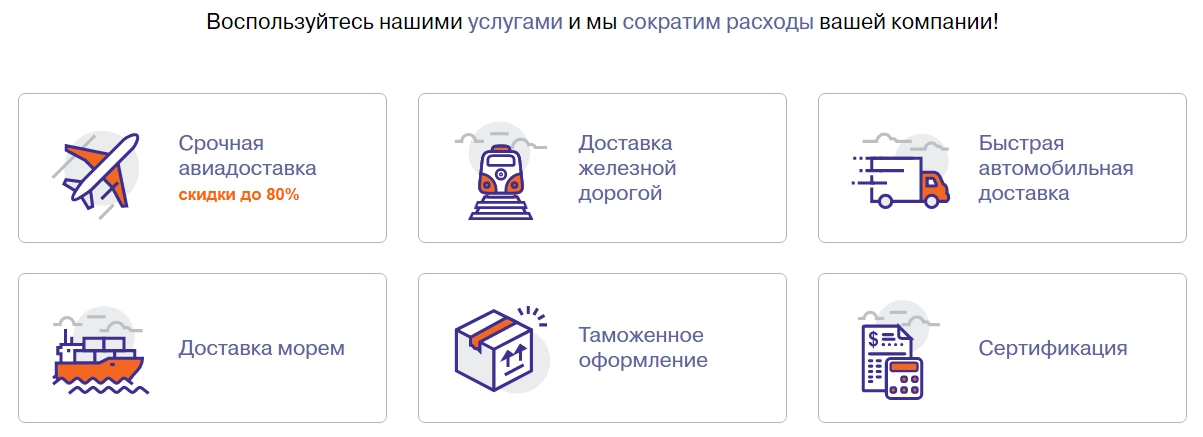How AI-driven Technologies are Reshaping Cargo Shipping
How AI-driven Technologies are Reshaping Cargo Shipping
Blog Article
The distribution field, particularly freight shipping, is undergoing a remarkable evolution, fueled by the unwavering progress of self-operating solutions. As companies compete for optimization and speed in shipping processes, mechanization stands at the forefront of this revolution, redefining how merchandise are shipped across the international markets. From AI-powered trucks to advanced monitoring systems, the dynamism of this industry is unmistakable, providing major enhancements in speed, trustworthiness, and cost-effectiveness.
Redefining Optimization with Mechanization
At the core of this digital wave sits the implementation of robotics in cargo delivery operations. Conventional methods often faltered under the burden of inefficiency and operator mistakes. However, contemporary self-operating systems offer intelligent methods that optimize operations.
One significant advancement is in the realm of air transport, where automation assists in handling multi-layered supply chain tasks that entail pathway mapping and aviation traffic control. This not only speeds up the process but also enhances reliability by reducing potential human misjudgments.
Improved surveillance features are another benefit. Modern technology enables for real-time tracking of packages, which provides organizations and clients informed about the location of their products round-the-clock. This visibility is crucial in building credibility and dependability in logistics distribution operations.
Reducing Costs and Streamlining Customs
Machine-driven solutions extends into the complex workflows of customs authorization, traditionally a obstacle for cargo movement due to its complex regulations and likely delays.
Advanced self-operating systems equipped with large-scale analytics tools can swiftly process massive datasets of documentation and ensure adherence with government policies more rapidly than in the past. This cutting down in processing duration lowers on overhead costs dramatically, showcasing a tangible financial advantage that businesses can leverage.
Revolutionizing Freight Management with Big Data
Additionally, the utilization of predictive modeling restructures the approach toward supply chain management and border clearance. By analyzing historical data and current patterns, machine-driven technologies forecast bottlenecks and streamline workflows to be more efficient and optimized.
Companies observing real-time data can execute data-driven decisions that automatically minimize uncertainties related to customs setbacks.
Eco-Friendly Aspect
Self-operating solutions also enhance positively to environmental responsibility in cargo transport. More precise and efficient navigation calculation lowers unnecessary resource usage and lowers harmful emissions.
Self-driving fleet systems are increasingly aligned with alternative power solutions and hybrid propulsion, aligning freight transport operations with global sustainability initiatives.
Improving Customer Experience
The self-operating technology optimizes not just supply chain productivity but also customer loyalty. The capability to monitor orders in real time, experience minimized setbacks, and enjoy minimized expenses enhances client experience positively.
Rapid, open, and efficient shipping models are more likely to foster loyalty and ongoing orders, demonstrating that modern innovation is essential in contemporary freight shipping operations.
Furthermore, as automated tools manage repetitive duties more efficiently, businesses can reassign human staff to areas needing problem-solving and planning, thereby enhancing service standards holistically.
Facing Ahead: The Self-Operating Horizon
The groundbreaking impact of self-operating technology in logistics transport ensures an exciting era for supply chain. As companies advance to harness these systems, they improve their competitive edge by providing faster, safer, and more economical delivery options.
Eco-conscious innovations further broaden the attractiveness of self-operating systems, synchronizing sector operations with eco-friendly efforts.
A Progressive Phase in Cargo Transport
In summary, the integration of automated technologies in freight transport opens up a myriad of opportunities designed for enhancing transport not only quicker but also more reliable and less costly.
The calculated leveraging of Big Data in simplifying border clearance processes further reinforces the performance of self-operating solutions in reshaping traditional logistics environments.
AI Integration: The Next Era of Freight Shipping
Logistics movement is moving decisively into a progressive phase driven by self-operating systems—a testament to humanity’s unwavering drive of innovation.
With ongoing developments, the capacity to reshape worldwide commerce structures remains, marking an hopeful roadmap towards an unified and optimized horizon in freight transport.
To read more about tamozhennoe oformlenie you can check our web page: here.